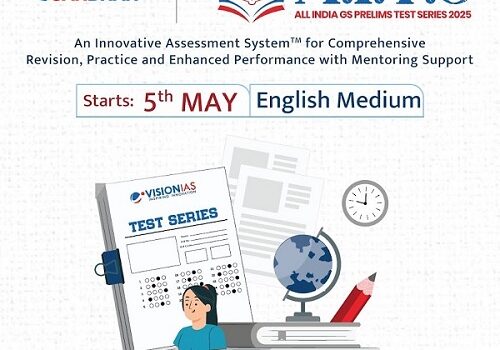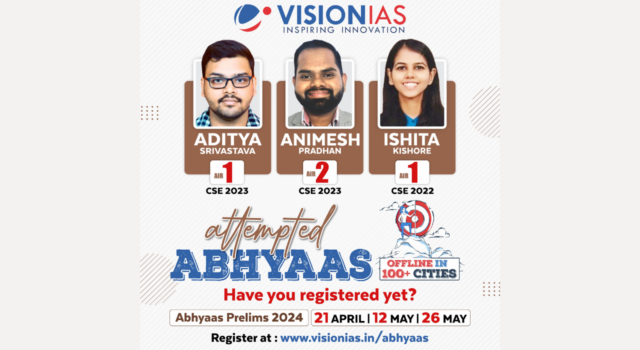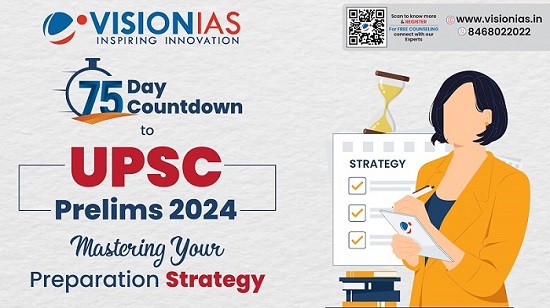
As the UPSC Prelims 2024 is nearing, the last 30 days are crucial for preparation. It is very natural to feel anxious and develop self-doubts, but with the right strategy you can turn this time in your favour. In this article, we will share practical tips to help you improve your performance and approach the exam with enhanced confidence.
It is normal to get overwhelmed by challenges like difficulty in revision and retention, sub-optimal scores in some mock tests and the resulting frustration and burnout. Recognizing and understanding these challenges is the first step towards overcoming them. With a targeted strategy, you can address these issues effectively and have a focussed preparation in the final stretch.
A Smart Strategy For The Last 30 Days
In these remaining thirty days, a plan entailing smart learning and revision, consistent practice and assessment, and effective use of resources is indispensable. Let’s try to understand what all factors are integral to making the most of these 30 days.
Smart Learning and Revision
- Focussing on Core Subjects: Prioritize core subjects like Polity, Economy, Environment, History, S&T and Geography, as most questions are from these areas. Further, a thorough understanding of core subjects also aids in better grasping current affairs.
- Current Affairs: Read and revise PT 365 documents for Polity, Economics, Science & Technology, Environment, International Relations, Government Schemes, Culture, and Social issues. These resources help facilitate easier memorization of important facts. Moreover, complement your revision with integrated PT 365 quizzes to reinforce knowledge and gauge your understanding.
- Smart Revision Techniques: To keep your revision comprehensive and engaging, set daily and weekly goals. Categorize subjects and allocate specific time slots for each, ensuring a balanced approach. Enhance retention by using active recall and spaced repetition techniques. Regularly use tests to identify and address weak areas. Additionally, adopt creative methods like mnemonics, flow charts, brain-mapping, diagrams, color coding, and peer discussions to boost memory and deepen your understanding of the material.
Effective Resource Utilization
Continue to rely on the study materials and notes you’ve used throughout your preparation. To optimize efforts further, leverage following smart resources:
- VisionIAS QRMs: Quick Revision Material (QRM) offers concise and comprehensive coverage of critical subjects. With visual aids and updated content, QRM simplifies complex topics for efficient revision and better retention, ensuring well-preparedness for the UPSC Prelims.
- VisionIAS 7-Year PYQ Trend Analysis: There is no alternative for practicing PYQs to decode the evolving patterns of CSE Prelims questions. The hallmark of VisionIAS 7-year PYQ documents is the detailed analysis of the questions with a focus on how to go about covering the important and recurring themes.
Practice and Assessment
Balancing revision with mock tests is crucial for effective preparation, as it allows you to evaluate your current knowledge and skills while identifying areas for improvement. Here are key components to a successful practice and assessment strategy:
- Regular Practice in Exam-like Conditions: Participate in the All India Prelims Test Series (AIPTS) to build familiarity with the exam format and develop the necessary stamina and mental resilience for the actual test.
- Simulated Exam Environment: Utilize the Abhyaas Prelims Mock Test Series 2024, available at over 100 centers nationwide, to rigorously evaluate your readiness in a simulated UPSC Prelims environment.
- Personalized Practice and Improvement: Leverage the Sandhan Personalized Test Series, part of the VisionIAS All India General Studies Prelims Test Series, to create customized tests based on your strengths and weaknesses. The personalisation feature is designed to allow topic-wise and subject-level customized test creation along with tailored feedback for improvement.
CSAT: The Game Changer in UPSC Prelims
Although a qualifying paper, the importance of CSAT cannot be overstated. Solving PYQs can help identify weak areas and ensure focused preparation. Reading comprehension, mathematics and reasoning can be given attention based on one’s competence and command.
Other Important Components
In addition to the above steps, let’s take a look at a few other crucial components.
- Health Management: Maintain a balanced diet, get adequate sleep, and engage in physical activities to stay healthy and focussed. Take short, regular breaks during study sessions to avoid burnout and keep your mind fresh.
- Building Confidence: Self-confidence and a positive attitude are essential. Believe in your strengths and abilities and remember that consistency pays off. Yoga, meditation, and deep-breathing exercises can help manage stress and stay focussed.
The last 30 days before the exam indeed pose a challenge but remember the challenge is universal and can be overcome.
With consistency and the correct strategy you can make the most of these 30 days. Make sure to leave your worries outside the exam hall on the big day.
Best wishes and good luck for your prelims examination! Success gets in your reach with dedication and perseverance.
Visit us at:
Or Call us at: 8468022022, 9019066066

















